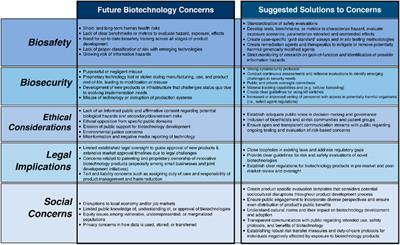Navigating Legal Frontiers AI Ethics, Biotech, and Emerging Challenges

Navigating Legal Frontiers: AI Ethics, Biotech, and Emerging Challenges
In a rapidly evolving technological landscape, the intersection of law and emerging areas like AI ethics and biotechnology poses intricate challenges. From privacy concerns to ethical considerations, legal frameworks are struggling to keep pace. Let’s delve into the multifaceted legal challenges in these domains.
The Ever-Expanding Realm of AI Ethics
Artificial Intelligence (AI) has transformed the way we live and work, bringing unprecedented opportunities and ethical dilemmas. As AI systems become increasingly sophisticated, concerns regarding accountability and transparency have taken center stage. Ethical considerations surrounding data privacy, bias in algorithms, and the potential impact on employment are driving legal discourse.
Biotechnology’s Ethical Conundrums
The rapid advancements in biotechnology present a myriad of ethical questions that demand legal attention. Issues such as gene editing, cloning, and the use of CRISPR technology pose challenges to existing legal frameworks. Striking a balance between scientific progress and ethical boundaries becomes crucial as we navigate the uncharted waters of manipulating the very building blocks of life.
The Balancing Act of Privacy in the Digital Age
As technological innovations burgeon, so does the need for robust privacy laws. AI applications often involve the processing of vast amounts of personal data, raising concerns about user privacy and consent. Biotechnological advancements, especially in genetics, further amplify the need for stringent privacy safeguards. Striking a balance that facilitates innovation while protecting individual privacy remains a delicate legal challenge.
Global Perspectives on Emerging Technologies
The legal landscape becomes even more complex when we consider the global nature of emerging technologies. Divergent regulatory approaches across countries can hinder the development and deployment of AI and biotechnological solutions. International cooperation and harmonization efforts are crucial to ensure a consistent legal framework that fosters innovation while addressing ethical concerns.
Collaborative Efforts for Ethical AI and Biotech
Addressing the legal challenges in AI ethics and biotechnology requires collaborative efforts from stakeholders across sectors. Governments, tech companies, researchers, and ethicists must work together to establish comprehensive legal frameworks that guide the responsible development and use of these technologies. Ensuring inclusivity in the decision-making process is paramount to avoid unintended consequences.
Legal Challenges in Emerging Areas: A Call to Action
The legal challenges posed by the rapid evolution of AI and biotechnology demand proactive measures. It is imperative for legal professionals, policymakers, and industry leaders to stay abreast of technological developments and collaborate on adaptive legal frameworks. The integration of ethical considerations into legal discourse is not just a necessity but a responsibility.
As we navigate these legal frontiers, it is crucial to remain vigilant, adaptive, and forward-thinking. The link between legal frameworks and emerging technologies is symbiotic, with each influencing the other. Only through a harmonious balance can we ensure that the benefits of AI and biotechnology are realized while safeguarding the principles of ethics, privacy, and accountability.
Legal challenges in emerging areas (e.g., AI ethics, biotechnology) are dynamic and multifaceted, requiring continuous dialogue and collaboration to shape a legal landscape that is both protective and conducive to innovation.
